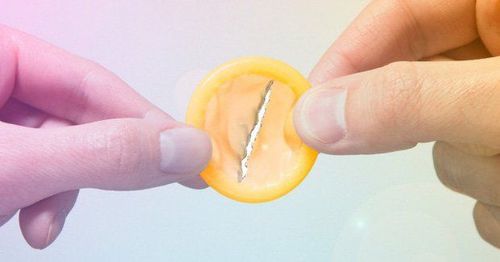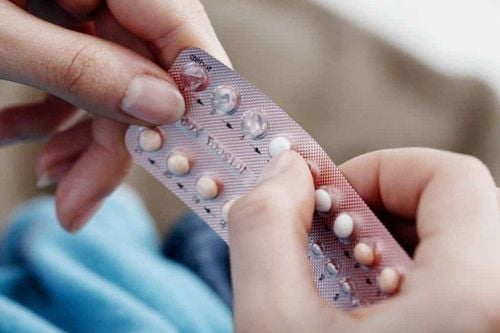Engaging in sexual activity during adolescence, particularly at ages 16 and 17, can lead to serious consequences for both the present and the future. These risks are heightened in the absence of proper knowledge about safe sexual practices. Early exposure to sexual activity not only affects the individuals involved but also places significant burdens on families and society.
1. What Are the Risks of Sexual Activity at Ages 16–17?
At 16 and 17 years old, adolescents are in the late stages of puberty, a phase where the body is not yet fully developed, and their understanding of sexual health may still be limited. Engaging in unsafe sexual activity at this stage can result in severe and lasting consequences.
The risks vary depending on gender. Below are some potential impacts of early and unsafe sexual activity:
1.1. Consequences for Females
At ages 16 and 17, the female reproductive system is not fully developed. The vaginal and vulvar tissues are thin and fragile. Early sexual activity without proper knowledge can cause severe damage, including tearing of the hymen and significant injuries to the vagina. Such injuries may lead to heavy bleeding and reduce the protective barrier of the vaginal mucosa, increasing susceptibility to infections.
These infections, such as urethritis, vaginitis, or vulvitis, can spread and result in complications, particularly when the individual lacks awareness or neglects treatment. Long-term, these complications could lead to conditions such as ectopic pregnancies or persistent genital infections if left untreated.
Early sexual activity can also cause psychological stress, anxiety, and other mental health issues for young women. Concerns about pregnancy, sexually transmitted infections, or the stability of their relationships can negatively impact their academic performance, social relationships, and overall well-being.
In addition to genital and psychological injuries, young females engaging in sexual activity without using safe practices face a high risk of unintended pregnancy.
If they are not in a position to have a child at such a young age, abortion often becomes an inevitable outcome. However, abortion procedures carry significant health risks and long-term consequences for both the present and future. Potential complications from abortion include infections, hemorrhage, uterine perforation, and thinning of the endometrial lining. Over time, these issues may lead to recurrent miscarriages, ectopic pregnancies, or even infertility in adulthood. The physical and emotional pain associated with these outcomes can leave lasting trauma, continuing into adulthood.

Conversely, if a young female decides to have the child and start a family during adolescence, it creates significant burdens for herself, her partner, their families, and society. The pressures of building a family while still in school, without a stable job or income, can be overwhelming. These challenges may lead to psychological trauma, mental health disorders such as depression, or even suicide. Moreover, this situation can contribute to increased rates of domestic violence, social instability, and other societal issues.
Children born to very young parents, such as those aged 16 or 17, may lack access to proper education and grow up in economically disadvantaged conditions. Therefore, engaging in sexual activity at 16 or 17 years old does indeed have significant consequences, directly impacting the individuals involved, society, and future generations.
1.2. Consequences for Males
For males, early sexual activity or excessive masturbation during adolescence can contribute to future infertility. Frequent ejaculation can reduce the quantity and quality of sperm. Over time, this may lead to conditions such as erectile dysfunction or premature ejaculation.
Engaging in early sexual activity without protective measures can lead to the contraction of sexually transmitted infections. Some serious conditions include HIV, gonorrhea, syphilis, HPV, and hepatitis B. Certain diseases may become chronic and currently lack definitive treatments. Notably, many individuals infected with these diseases are not diagnosed in time due to fear and reluctance to share their situation. This delays appropriate treatment, allowing the disease to progress severely and causing serious complications.
Additionally, early sexual activity may cause psychological and behavioral issues, especially if physical injuries occur to their own or their partner's genital areas. Like females, males are also at risk of becoming young fathers due to unplanned pregnancies, which can have profound and lasting effects on their mental health, sexual health, and future reproductive capabilities.

2. What Is the Appropriate Age for Sexual Activity?
Under Vietnamese law, individuals aged 16 and older can engage in consensual sexual activity. The threshold of 16 years is based on criminal psychology studies, which suggest that individuals at this age are generally capable of understanding the physical and emotional implications of their actions and taking responsibility for them.
According to the 2016 Law on Children, individuals under the age of 16 are considered minors, and any sexual activity involving them is legally prohibited. However, it is not recommended that individuals who are just turning 16 immediately begin engaging in sexual activity. At this age, most are still in school and dependent on their families for financial and emotional support. Adolescents should focus on education and building healthy relationships rather than pursuing sexual experiences.
Experts in reproductive health recommend avoiding sexual activity before the age of 20 for males and before 18 for females. These ages align with the legal marriage age in Vietnam and mark a period when the body has fully matured, and mental development is more stable. By this time, individuals are better prepared physically, mentally, and educationally to protect themselves and their partners from the potential risks of sexual activity.
Early sexual activity among young people today can stem from various societal influences, such as early exposure to social media, pornography, or age-inappropriate content. To mitigate the risks associated with early sexual activity, comprehensive sex education should begin in schools at an early age.
Such education should include knowledge about reproductive health, safe sexual practices, and effective contraception methods. This information is essential for empowering adolescents to protect themselves and avoid unintended consequences. Moreover, equipping young people with this knowledge can help reduce the social and familial burdens that often arise from early sexual activity.
To arrange an appointment, please call HOTLINE or make your reservation directly HERE. You may also download the MyVinmec app to schedule appointments faster and manage your reservations more conveniently.













